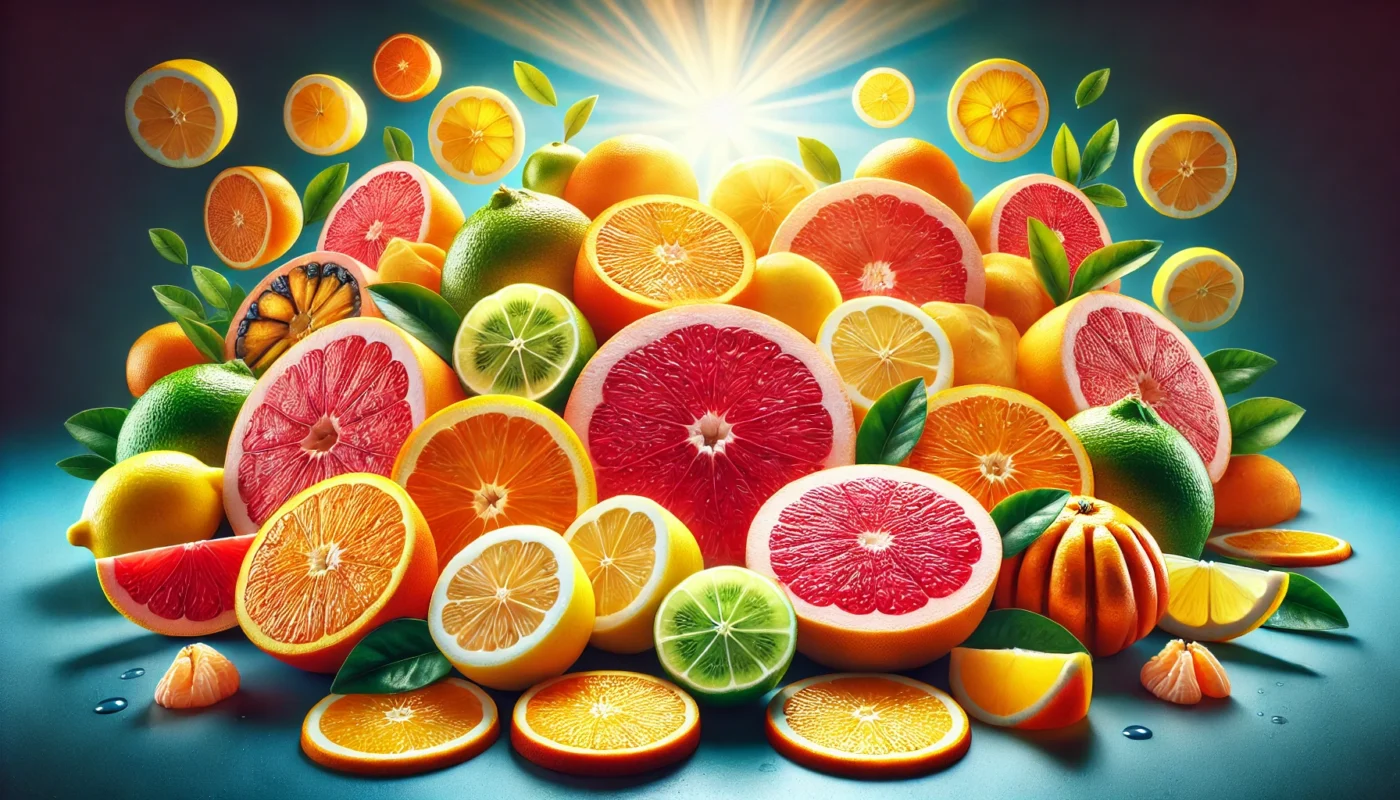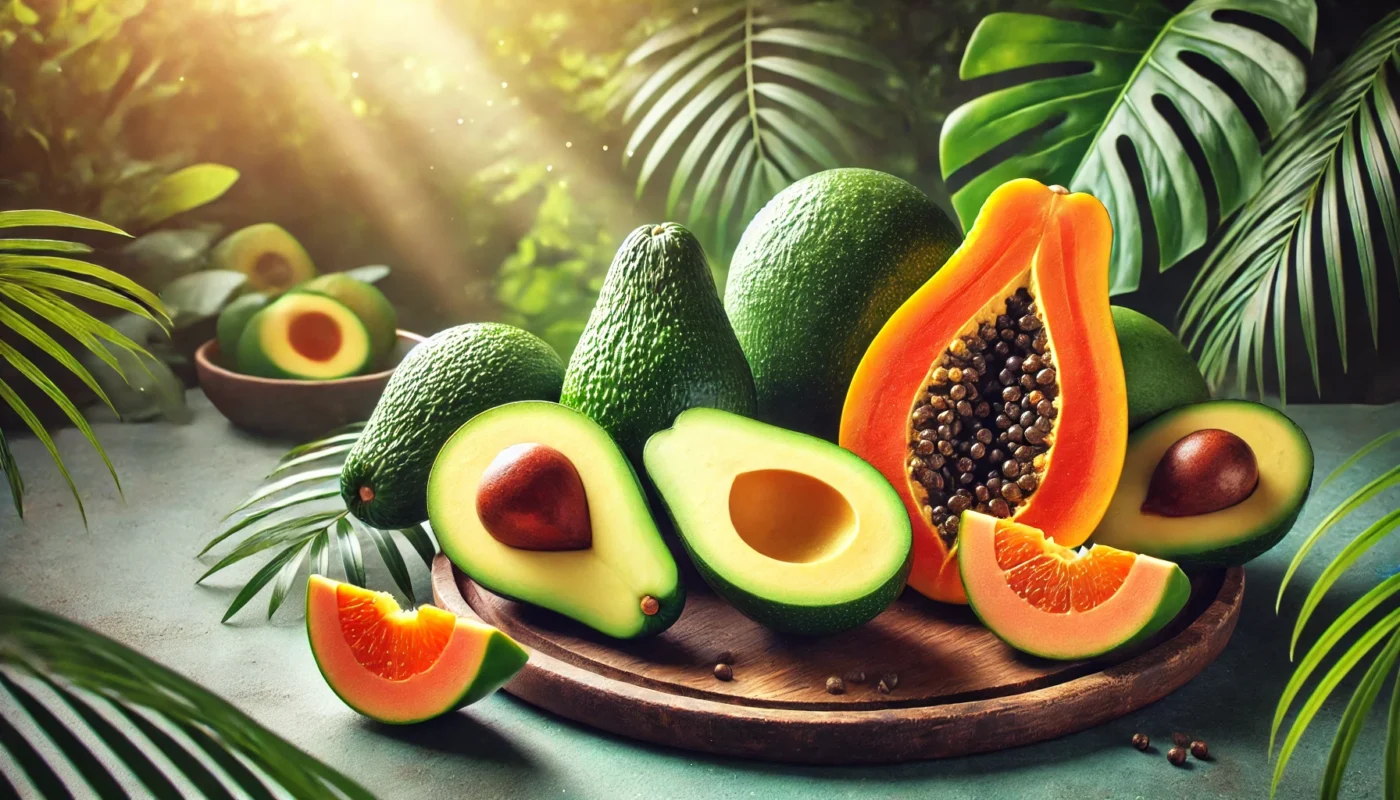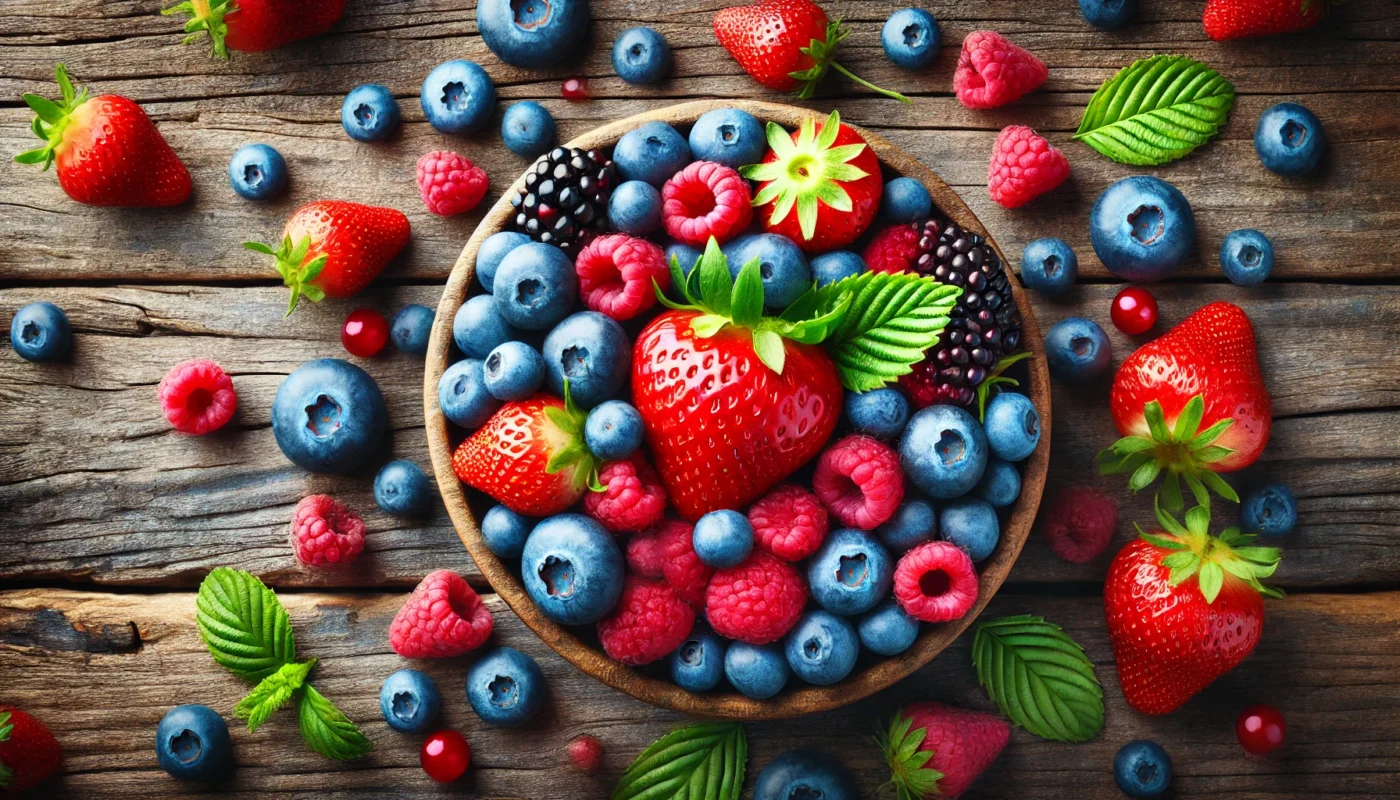The quest for radiant skin and luscious hair often leads us down the aisles of beauty stores. But what if the secret to glowing skin and healthy hair lies not in a bottle, but on your plate?
Fruits, nature’s sweet gifts, are packed with essential nutrients. They hold the key to enhancing our skin and hair health from the inside out.
Vitamins, antioxidants, and healthy fats found in fruits play a crucial role in maintaining our skin and hair’s vitality. They aid in repair, hydration, and protection against environmental damage.
But with a plethora of fruits available, which ones should you reach for? This article will guide you through the best fruits for skin and hair health.
We’ll delve into the science behind their benefits, making it easy for you to understand and apply. We’ll also provide practical tips on how to incorporate these fruits into your daily diet.
Whether you’re a fitness enthusiast, a health enthusiast, or a medical patient, this guide is for you. It’s time to harness the power of fruits for radiant skin and hair.
So, are you ready to embark on this fruitful journey towards better skin and hair health? Let’s dive in.
You may also like: Top Supplements to Enhance Bone Healing
The Nutritional Powerhouse of Fruits for Skin and Hair
Fruits are more than just delicious snacks. They are vibrant, nutritious powerhouses vital for skin and hair health. Each fruit offers a unique blend of nutrients essential for maintaining beauty from within.
Packed with vitamins and antioxidants, fruits help repair and protect skin cells. They fend off damage from environmental stressors and contribute to a youthful appearance. These powerful compounds also play a role in boosting hair strength and shine.
A balanced diet rich in fruits promotes overall wellbeing. Including a variety of fruits ensures you get a wide range of beneficial nutrients. This dietary diversity reflects positively on your skin and hair.
Consider adding the following into your diet for optimal results:
- Vitamins (A, C, E)
- Antioxidants (from colorful fruits)
- Healthy fats (found in avocados)
- Hydrating fruits (like watermelon)
- Enzymes (from pineapples and papayas)
These nutrients work harmoniously to keep your skin and hair looking their best. However, not all fruits impact skin and hair health equally. Choosing fruits rich in specific vitamins and nutrients maximizes their benefits.
Emphasizing the right fruits can dramatically improve the health of your skin and hair. The following sections will explore these nutrients in more detail, providing insights on how to use them effectively.
Vitamins and Antioxidants: The Skin’s Best Friends
Vitamins are fundamental in skin health, promoting repair and regeneration. Vitamin C, found abundantly in fruits like citrus and kiwi, is crucial for collagen synthesis, enhancing skin elasticity and reducing wrinkles.
Vitamin A, present in mangoes and apricots, aids skin repair and renewal. It helps improve skin tone and texture, combating dullness and rough patches. Meanwhile, vitamin E, found in avocados, offers intense moisture and protection against free radical damage.
Antioxidants are equally vital. They guard against oxidative stress from pollutants and UV rays, preserving skin’s youthful glow. Berries, with their high antioxidant content, neutralize harmful free radicals, aiding in skin rejuvenation.
The combination of these vitamins and antioxidants is potent. Together, they create a shield against environmental damage while fostering skin health and beauty. The skin becomes more resilient and radiant with regular intake of antioxidant-rich fruits.
Incorporating a variety of these fruits into your diet can help achieve a balanced intake of essential vitamins and antioxidants.
Hydration and Healthy Fats: The Secret to Luscious Hair
Hydration is as important for hair as it is for skin. Fruits high in water content, like watermelon and cucumber, contribute significantly to keeping the scalp and hair hydrated, promoting shine and vitality.
Healthy fats are another secret to luscious locks. Avocados, rich in monounsaturated fats, nourish the hair follicles, enhancing strength and elasticity. These fats create a protective barrier, locking in moisture and giving hair a silky texture.
Beyond fats, certain fruits offer additional hair-friendly nutrients. Bananas, rich in potassium, strengthen hair and maintain scalp health. Their moisture-locking properties help combat dry and brittle hair.
Papaya plays a unique role with its enzyme content. It gently exfoliates the scalp, removing dead skin cells and promoting hair growth. This enzymatic action supports a healthier environment for hair follicles, leading to stronger strands.
Integrating fruits with hydrating and nourishing properties into your diet can lead to vibrant, healthy hair. It ensures the hair’s structural integrity is maintained, preventing common issues like split ends and dryness. By embracing these fruits, you’ll find your hair softer and more manageable.

Top Fruits for Skin and Hair Health
A well-rounded diet featuring a variety of fruits can truly transform your skin and hair’s appearance. By focusing on fruits rich in specific nutrients, you can address many beauty concerns. From hydration to collagen production, these fruits cater to all essential needs.
Selecting top-tier fruits for beauty doesn’t need to be daunting. The key is to understand each fruit’s benefits and incorporate them into your diet. This section explores those powerhouse fruits known for their transformative effects on skin and hair.
By the end of this guide, you’ll be equipped with knowledge to make informed choices. You will enhance your natural beauty by simply harnessing the nutrients found in delicious, everyday fruits. Let’s explore these top choices in detail.
Berries: A Burst of Antioxidants
Berries are small yet mighty allies in skin and hair health. Packed with powerful antioxidants, they protect cells from free radicals. This helps preserve youthful skin and prevents premature aging.
Rich in vitamin C, berries like strawberries and blueberries boost collagen production. Collagen is crucial for maintaining skin elasticity and combating fine lines and wrinkles.
Beyond skin benefits, berries contribute to vibrant hair. Their high antioxidant levels strengthen hair follicles, supporting growth and preventing damage. Incorporating these colorful fruits into your diet can revitalize both skin and hair.
Citrus Fruits: Vitamin C for Collagen Production
Citrus fruits are synonymous with vitamin C, a nutrient essential for skin health. Oranges, lemons, and grapefruits are rich in this vitamin, crucial for collagen synthesis. Collagen maintains skin’s firmness and elasticity.
The citric acid in these fruits also works as a natural exfoliant. It removes dead skin cells, revealing a brighter and more even complexion. This dual action keeps the skin both strong and radiant.
Adding citrus fruits to your daily routine can also improve hair health. The vitamin C aids in better nutrient absorption, promoting healthier hair growth. Enjoying these juicy fruits ensures your beauty regimen is both delicious and beneficial.
Apples and Pomegranates: UV Protection and Collagen Preservation
Apples, with their skin-loving antioxidants, are key to defending against UV damage. They contain quercetin, which acts as a natural sunblock, safeguarding skin from harmful rays. This defense mechanism helps maintain skin integrity and tone.
Pomegranates, on the other hand, are rich in punicalagin and ellagic acid. These compounds actively preserve collagen, ensuring skin stays supple and resilient. This preservation helps ward off signs of aging, like sagging and wrinkles.
For hair, pomegranates add another layer of protection. The antioxidants support healthy hair follicles, promoting stronger and shinier locks. Including these fruits in your diet provides a dual benefit of skin protection and hair nourishment.
Avocado and Papaya: Healthy Fats and Enzymatic Action
Avocados are renowned for their healthy fats and comprehensive nutrient profile. These nutrients deeply nourish the skin, promoting elasticity and reducing inflammation. Vitamin E and C in avocados also contribute to a more vibrant complexion.
Papayas come into play with their enzymatic prowess, primarily through the enzyme papain. This enzyme aids in gentle exfoliation, removing dead skin cells and fostering renewal. The result is smoother, more radiant skin with an even texture.
For hair, avocados provide essential fatty acids, promoting healthier strands. Papaya’s natural enzymes also support a balanced and healthy scalp, enhancing hair quality. Together, these fruits form a dynamic duo for skin and hair enhancement.
Kiwi and Pineapple: Collagen Formation and Anti-Inflammatory Properties
Kiwi, a lesser-celebrated superfruit, is a vitamin C powerhouse. It plays a significant role in collagen production, ensuring skin remains firm and plump. This nutrient also assists in repairing damaged skin tissues.
Pineapple shines with its anti-inflammatory properties, thanks to the enzyme bromelain. This enzyme helps reduce swelling and redness, promoting a calm and clear complexion. Its mild exfoliating effects also reveal smoother skin.
For hair, kiwi provides essential nutrients that fortify hair strands. Pineapple’s enzymes contribute to a healthy scalp, supporting vibrant hair growth. Incorporating these fruits can enhance overall beauty, from skin’s glow to hair’s luster.
Watermelon and Mango: Hydration and Skin Repair
Watermelon, with its abundant water content, is ideal for hydrating skin from within. This hydration is critical for maintaining a supple and radiant complexion. Additionally, its antioxidants prevent damage and keep skin youthful.
Mangoes offer a high dose of beta-carotene and vitamin A, both vital for skin repair and rejuvenation. These nutrients aid in healing and repairing damaged skin, enhancing its overall appearance and texture.
For hair, the hydrating properties of watermelon help combat dryness. Mangoes further support hair health by providing essential vitamins that strengthen follicles. By including these tropical delights in your diet, you nourish and rejuvenate skin and hair alike.

Practical Tips for Incorporating Fruits into Your Diet
Introducing a variety of fruits into your diet is a step towards vibrant skin and hair. To reap their benefits, consistency is key. Here are some effective strategies to add more fruits to your meals.
Begin by identifying fruits you enjoy and those that offer specific health benefits. This personalized approach increases the likelihood of sticking to your new habits. Focus on versatility and how they can fit into your favorite meals.
Next, aim to incorporate fruits into each meal. Whether it’s breakfast, lunch, or dinner, fruits can enhance both nutrition and flavor. Here are some practical ways to seamlessly introduce them into your diet:
- Add sliced fruits to cereals or yogurt.
- Blend fruits into smoothies for a refreshing drink.
- Top salads with colorful fruits for added texture.
- Prepare fruit-based desserts for a healthy treat.
- Snack on fresh fruits instead of processed snacks.
By implementing these tips, you’ll not only enjoy delicious meals but also support your skin and hair health with minimal effort.
Daily Fruit Intake: How Much is Enough?
Determining the right amount of daily fruit intake can optimize your health benefits. While general guidelines suggest 1.5-2 cups a day, individual needs may vary. It’s essential to consider factors such as age, activity level, and overall diet.
For fitness enthusiasts, increasing fruit intake supports higher nutrient demands. Those with specific health concerns may benefit from consulting with a healthcare provider for personalized recommendations. Customizing intake ensures you meet your unique nutritional needs.
Moreover, balancing fruit consumption with other food groups is crucial. Variety allows for a broader spectrum of nutrients, promoting overall wellness and beauty. Include different fruits daily to maximize health benefits while enjoying diverse flavors.
Creative Ways to Enjoy Fruits
Consuming fruits need not be a boring routine. A little creativity can make a significant difference in how you perceive and enjoy fruits daily. By exploring different preparation methods, you can find new favorite dishes.
Think beyond eating fruits raw. Incorporate them into cooking, or try innovative serving styles. Here are some creative ideas to savor fruits:
- Grill fruits like peaches or pineapples for a smoky flavor.
- Mix fruit slices with herbs for a refreshing salad.
- Use pureed fruits as a base for sauces or marinades.
- Freeze fruits for homemade sorbets or ice pops.
- Incorporate them into baked goods for added sweetness.
Experimenting with different techniques not only enhances flavor but also elevates your overall eating experience. These suggestions add excitement and variety to your diet.
Seasonal and Organic: Making Smart Fruit Choices
Choosing the right type of fruits can significantly impact health outcomes. Opt for seasonal and organic fruits whenever possible for maximum benefits. These options often have better nutrient profiles and fewer chemical residues.
Seasonal fruits are harvested at their peak, ensuring optimal taste and freshness. They are usually more affordable and support local economies. Embracing seasonal variations introduces a delightful variety to your diet.
On the organic front, prioritizing pesticide-free produce reduces exposure to potential toxins. Although not always possible, aim for organic for fruits with thin skins, like berries, to minimize chemical intake. Making informed choices empowers you to enjoy fruits in the healthiest way possible.
The Holistic Approach: Fruits in Combination with Lifestyle
Integrating fruits into your lifestyle goes beyond just eating them. It’s about creating a supportive environment for overall wellness. When combined with healthy habits, fruits can significantly enhance your skin and hair health.
A holistic lifestyle approach considers not just diet but also hydration, sleep, stress management, and physical activity. Each plays an essential role in maximizing the benefits fruits offer. How you live impacts how your body absorbs and utilizes nutrients.
The synergy of fruits with other lifestyle choices can optimize your health outcomes. For instance, maintaining proper hydration and gut health ensures efficient nutrient absorption from fruits. Hydrated skin is less prone to dryness, and a healthy gut reflects a glowing complexion.
Remember, a holistic approach involves consistency and mindfulness. Daily choices in various aspects of life cumulatively support the body’s natural processes, promoting vibrant skin and hair.
Balancing Diet with Hydration and Gut Health
A well-balanced diet rich in fruits is crucial for skin and hair but should be paired with adequate hydration. Water aids in nutrient transportation and helps maintain elasticity and moisture in the skin.
Additionally, a healthy gut greatly influences nutrient assimilation. Eating fiber-rich fruits like apples and berries supports gut health by promoting regular bowel movements and a balanced microbiome. This, in turn, reflects positively on skin clarity and hair growth.
Combining a fruit-rich diet with ample water intake keeps you hydrated from the inside out, supporting optimal cell function. This balance facilitates the absorption of vitamins and antioxidants found in fruits, leading to more radiant skin and healthier hair.
The Role of Sleep and Stress Management
Sleep and stress management play vital roles in the effectiveness of a fruit-rich diet. Adequate sleep is essential for skin and hair regeneration, allowing the body to repair and recover.
During sleep, stress hormones decrease while growth hormones increase, aiding in tissue repair. Consuming fruits like cherries, which contain melatonin, can promote better sleep patterns. Better rest results in revived and rejuvenated skin and hair.
Managing stress is equally crucial. Fruits rich in antioxidants, such as blueberries, help combat oxidative stress, reducing cell damage. Mindful practices, along with a nutritious diet, help balance stress levels, leading to long-term health benefits.
Physical Activity and Fruit Consumption
Physical activity complements a diet abundant in fruits, further enhancing skin and hair health. Exercise increases blood circulation, delivering nutrients more efficiently to hair follicles and skin cells.
Incorporating fruits into your pre- or post-workout routine can provide an energy boost and aid recovery. Bananas, for example, offer quick-digesting carbohydrates and potassium, essential for muscle recovery and hydration balance.
Moreover, regular physical activity helps manage weight and reduces stress hormones. When coupled with a fruit-rich diet, it supports a healthy, active lifestyle. This combination not only fuels your body efficiently but also visibly enhances your appearance, contributing to glowing skin and strong hair.

Overcoming Challenges and Misconceptions
While fruits are undeniably beneficial, certain challenges and misconceptions can arise. It’s essential to navigate these effectively to reap the maximum benefits.
One common concern is the sugar content in fruits. Many worry about the impact on overall health, particularly regarding blood sugar levels. Understanding natural sugars and moderation is key to overcoming this challenge.
Allergies and sensitivities are another significant hurdle. Listening to your body’s reactions is crucial. It’s important to distinguish between common digestive responses and true allergic reactions when consuming different fruits.
Lastly, there’s confusion about fruit juices and extracts. While convenient, they may not always offer the same nutritional benefits as whole fruits. Investigating processing methods and ingredients can clarify their place in a balanced diet.
Managing Sugar Intake from Fruits
Natural sugars in fruits differ from added sugars found in processed foods. They come with fiber, vitamins, and minerals, which mitigate health impacts. However, moderation remains important for managing overall sugar intake.
Opting for whole fruits over fruit juices can help regulate sugar consumption. Whole fruits offer fiber, helping to slow the absorption of sugar into the bloodstream. This balanced intake supports steady energy levels throughout the day.
Prioritizing fruits with lower sugar content, like berries and kiwi, can further manage intake. These fruits provide high nutrient density, enhancing skin and hair health while keeping sugar levels in check.
Allergies and Sensitivities: Listening to Your Body
Understanding your body’s responses is crucial when incorporating new fruits into your diet. Some individuals might experience allergies or sensitivities, manifesting as digestive discomfort or skin reactions.
Start with small amounts when trying new fruits and monitor your body’s reaction. If adverse effects occur, it’s wise to consult a healthcare professional. They can help identify specific allergies or intolerances.
Pay close attention to symptoms that arise from fruit consumption. This vigilance helps tailor your diet to what works best for you, ensuring you enjoy the benefits without unwanted side effects.
The Truth About Fruit Juices and Extracts
Fruit juices and extracts can seem like a healthy choice but often lack vital nutrients found in whole fruits. Processing can strip away fiber, impacting the body’s ability to process sugar efficiently.
Moreover, many commercial juices have added sugars or preservatives. These additives can negate any potential health benefits. Choosing 100% pure juices or making your own at home can ensure better quality.
Ultimately, opt for whole fruits when possible. They provide a full spectrum of nutrients essential for skin and hair health. Juices and extracts can supplement your diet but should not replace whole fruit consumption.
Conclusion: Fruits as a Pillar of Skin and Hair Health
Incorporating fruits into your daily diet is a natural and effective strategy for achieving radiant skin and vibrant hair. These powerhouse foods are loaded with essential nutrients, including vitamins, antioxidants, and healthy fats, that support cellular health and rejuvenation.
Each fruit offers unique benefits. Berries provide antioxidants, citrus fruits boost collagen production, and avocados enhance skin elasticity. By embracing a varied fruit intake, you can optimize these benefits and promote overall wellness.
Ultimately, while enjoying fruits, remember the importance of balance and moderation. Whole fruits, combined with a healthy lifestyle and mindful choices, form a solid foundation for long-term skin and hair health. Integrating these delicious and nutrient-rich options into your regimen not only enhances your appearance but also contributes to a holistic approach to well-being.
Further Reading:
Southlake Dermatology: Nourish Your Skin from the Inside Out: Why Healthy Eating is Key to Skin Health
Goodfood: Eat your way to fabulous skin
Cleveland Clinic: Surprise! Kiwi Skin Is Edible — and Really Good for You
fruits, health, skin health, hair health, nutrition, organic fruits, seasonal fruits, hydration, gut health, diet, antioxidants, wellness, lifestyle, physical activity, sugar intake, allergies, fruit juices, holistic health, vitamins, minerals
Important Note: The information contained in this article is for general informational purposes only, and should not be construed as health or medical advice, nor is it intended to diagnose, prevent, treat, or cure any disease or health condition. Before embarking on any diet, fitness regimen, or program of nutritional supplementation, it is advisable to consult your healthcare professional in order to determine its safety and probable efficacy in terms of your individual state of health.
Regarding Nutritional Supplements Or Other Non-Prescription Health Products: If any nutritional supplements or other non-prescription health products are mentioned in the foregoing article, any claims or statements made about them have not been evaluated by the U.S. Food and Drug Administration, and such nutritional supplements or other health products are not intended to diagnose, treat, cure, or prevent any disease.

